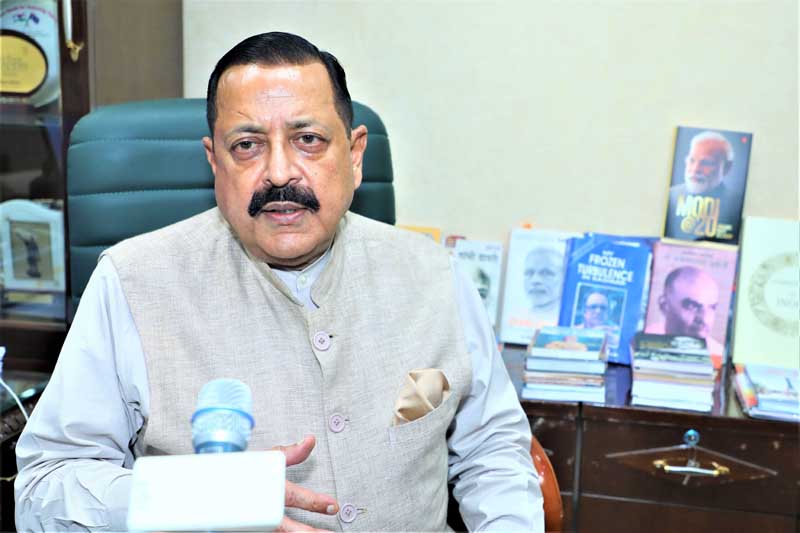Excelsior Correspondent
NEW DELHI, June 28 : Union Minister of State (Independent Charge) Science & Technology; MoS PMO, Personnel, Public Grievances, Pensions, Atomic Energy and Space, Dr Jitendra Singh has hailed the Union Cabinet approval for establishing the “National Research Foundation” (NRF). The approval came in response to a proposal moved by the Ministry of Science & Technology in the cabinet meeting this morning.
The Minister, in particular, thanked Prime Minister Narendra Modi for enabling this landmark decision and said that it was none other than PM Modi himself who had, for the first time, in his address to Indian Science Congress on January 3, 2019, given the scientific fraternity the concept and idea of constituting a body like this.
The Union Cabinet chaired by Prime Minister Modi approved the introduction of National Research Foundation(NRF) Bill 2023 in the parliament to establish NRF that will function as a high level think tank for coordination and long term as well short term planning. It will also seek to create infrastructure and a conducive environment so as to facilitate scientific research and innovation across the countries, including in the peripheral university particularly in the rural and semi urban areas.
In a tweet Dr Jitendra Singh said that the National Research Foundation will foster a vibrant culture of research, innovation, academics, industrial applications, and StartUps in the country, and enhance India’s role as a global player.
The new body will also analyse expenditure and project, and conduct annual surveys of scientific research.
The proposed NRF will seed, grow and promote research and development (R&D) and foster a culture of research and innovation throughout India’s universities, colleges, research institutions, and R&D laboratories.
The bill, after approval in the Parliament, will establish NRF, an apex body to provide high-level strategic direction of scientific research in the country as per recommendations of the National Education Policy (NEP), at a total estimated cost of ? 50,000 crore during five years (2023-28).
The Department of Science and Technology (DST) will be the administrative Department of NRF which will be governed by a Governing Board consisting of eminent researchers and professionals across disciplines.
Since the scope of the NRF is wide-ranging – impacting all ministries – the Prime Minister will be the ex-officio President of the Board and the Union Minister of Science & Technology & Union Minister of Education will be the ex-officio Vice-Presidents. NRF’s functioning will be governed by an Executive Council chaired by the Principal Scientific Adviser to the Government of India.
NRF will forge collaborations among the industry, academia, and government departments and research institutions, and create an interface mechanism for participation and contribution of industries and State governments in addition to the scientific and line ministries. It will focus on creating a policy framework and putting in place regulatory processes that can encourage collaboration and increased spending by the industry on R&D.
The bill will also repeal the Science and Engineering Research Board (SERB) established by an Act of Parliament in 2008 and subsume it into NRF which has an expanded mandate and covers activities over and above the activities of SERB.


